How is the NEP going to affect the way we teach?
The educational policy amendments potentially affect how teachers teach, and students learn.
The New Education Policy (NEP) 2020 is intended to bring about changes in the education system to improve the quality of education and outcomes of learners. This policy completely overhauls India’s educational system, from Anganwadi to higher education..
The vision of NEP 2020:
The main goal of NEP 2020 is to change the Indian educational system into one that is more accessible, comprehensive, and student-centred and that can provide students with the principles, information, and abilities they need to succeed in the modern age.
The meaningful effect of NEP in our education system:
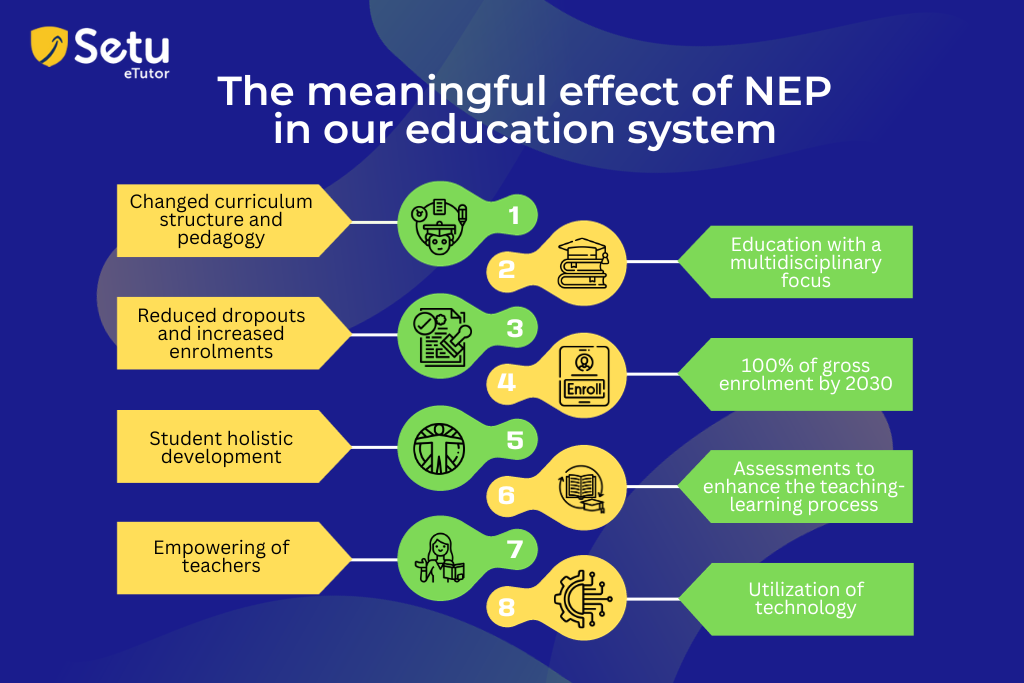
Implementing NEP 2020 brings massive changes to the Indian education system. They are:
- Changed curriculum structure and pedagogy:
In place of the current 10+2 school system, a new 5+3+3+4 structure is suggested, guaranteeing kids a solid educational foundation. In the 5+3+3+4 structure
- 5 denotes education from Anganwadi to class 2, which is foundational,
- 3 denotes education from calls 3 to class 5, which is preparatory,
- Another 3 denotes education from class 6 to class 8, which is middle.
- 4 denotes education from class 9 to 12, which is secondary school.
2. Education with a multidisciplinary focus:
The NEP 2020 aspires to remove the historical boundaries between various fields of study and encourage a more holistic and multidisciplinary learning method. Students will be capable of gaining information and abilities that can be used in various fields.
3. Reduced dropouts and increased enrolments:
No matter their socioeconomic status or geographic location, all children in India should have access to a high-quality education, according to the NEP 2020. At all educational levels, it also strives to boost enrolment rates and lower dropout rates.
4.100% of gross enrolment by 2030:
By 2030, every child is expected to be enrolled in school through public or private institutions and have access to a high-quality education. More than 3.22 crore out-of-school children would be integrated into the formal education system by providing opportunities for entering and leaving the education system.
5. Student holistic development:
The NEP 2020 recognizes the value of holistic education and seeks to promote students’ mental, emotional, and intellectual development. It also emphasizes how important it is for students to grow in their capacity for imagination, critical analysis, and problem-solving abilities.
- Assessments to enhance the teaching-learning process:
Assessments are among the most essential elements of NEP 2020 that affect the education system positively. Changing the focus from annual exam patterns to formative, subjective assessments helps build more skills and enhances teaching and learning.
7. Empowering of teachers:
The NEP 2020 acknowledges the importance of teachers in the educational system. It seeks to provide them with the knowledge, tools, and assistance they need to provide the kids they teach with high-standard education.
8. Utilization of technology:
The NEP 2020 recognizes the transformative impact of modern technology in educational institutions and strives to make the most of it to improve student and faculty learning experiences.
How is SETU aligned with the New Education Policy 2020?
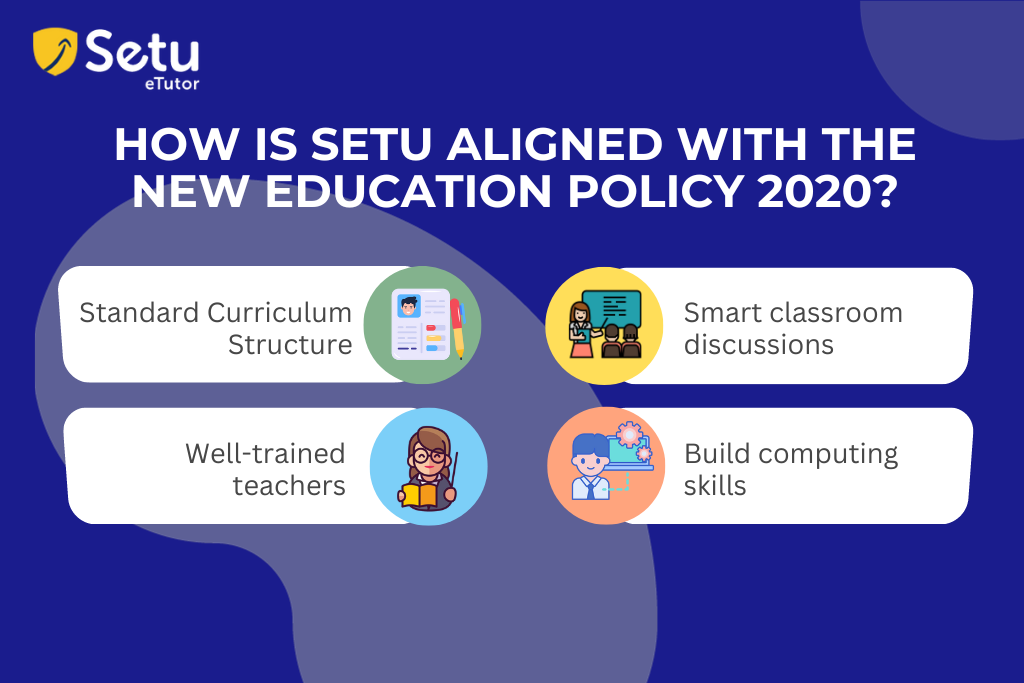
SETU is aligned with the NEP 2020’s vision for a more empowered, technology-enabled, Student-focused, outcomes-oriented, and professionalized teaching workforce in India.
Standard Curriculum Structure: The NEP 2020 serves as a baseline for the SETU curriculum. The curriculum is enhanced, student-focused, application-based, and tasking-modal to assist kids in becoming more self-assured and prepared for the future.
Smart classroom discussions enable interactive learning that appeals to students’ visual and hearing senses. In contrast to traditional education, smart classrooms foster curiosity among learners while rendering education more engaging, which helps boost their conceptual understanding.
Well-trained teachers: SETU teachers are certified and have a teacher tab filled with training materials, lesson plans, and assessments. Teachers can lead this transformation because of readily available educational resources and technologies.
Build computing skills: Computational skills give each student the ability to work with a variety of applications, reason analytically and mathematically, and create websites, games, and applications.
Conclusion:
The most noticeable feature when exploring the NEP 2020 is to provide a high-quality and standard education system for the students. SETU is a platform to enhance and explore new educational opportunities and trends in the education system.




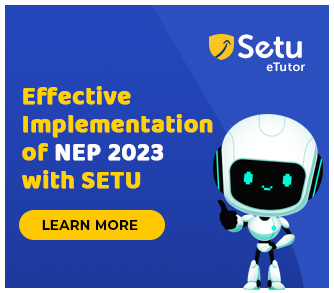
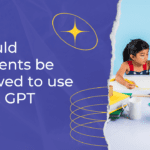

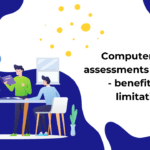
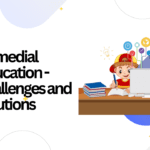
Leave a reply